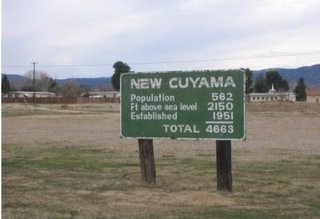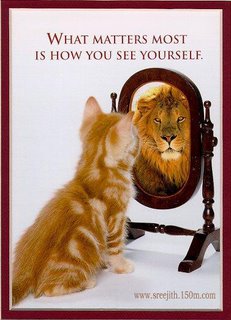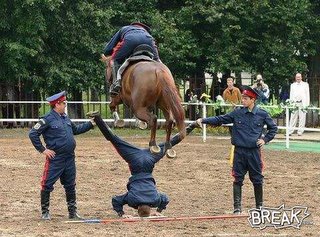Tuesday, December 06, 2005
'The CBS Daily Show With Jon Stewart'
Frankly--and frighteningly, considering that I spent seven of the best years of my life as Paris correspondent for CBS News--it wasn't all that difficult to imagine. First, let's put ourselves in the place of the average Evening News viewer. He or she is somewhere north of 50 years old (probably considerably north) and has been watching it since Walter Cronkite (remember him, kids? Probably not) was in the anchor chair. So suddenly these ancestral viewers would have to find an alternative. It wouldn't be all that hard. All these network news shows look pretty much alike.
Perhaps they'd settle on Brian Williams--a nice enough fellow, adequately blow-dried and with a refined sensibility, if last week's reports from New Orleans were any indication. Or they could try The Walt Disney Co.'s (nyse: DIS - news - people ) ABC News, which just named the virtually interchangeable Elizabeth Vargas and Bob Woodruff as co-anchor successors to Peter Jennings. And there's always the likes of Wolf Blitzer and Anderson Cooper on Time Warner's (nyse: TWX - news - people ) CNN or, let's not leave them out, Brit Hume and Shepard Smith on News Corp.'s (nyse: NWS - news - people ) Fox News Network, or Keith Olbermann and Rita Cosby on General Electric's (nyse: GE - news - people ) MSNBC.
Would anyone really notice if there were simply five evening news broadcasts instead of six? CBS News, as it's now constituted, might think so. I'm not so sure. So let's see what burying the Evening News might do for CBS News.
At one point, CBS, now part of Viacom, (nyse: VIA.B - news - people ), had the largest corps of foreign and domestic correspondents and the largest bureau system of any television news gathering operation on the planet. When I was based in Paris, in any given week I could be shipped off to any one of three continents. I recall one particularly frenetic day, when they thought a boat had gone down with a load of plutonium, when I was in four countries in a single 24-hour period. That just doesn't happen any more--not at CBS, not in any other network news operation. It's way too expensive.
Still, today's pared-to-the-bones CBS could save quite a lot more money by going The Daily Show route. First, comedy writers earn a lot less than senior producers or correspondents on a network evening news show. You might want to hold on to a few such correspondents and producers just in case the pope dies or the president gets shot or there's some other history-altering moment and you want do something more elaborate than simply poke fun at it, as Jon Stewart does so effectively on Comedy Central. Still, you don't need to have a whole regiment of correspondents, producers and camera crews suited up and ready to go 24/7.
Moreover, The Daily Show even has the beauty of being owned by Comedy Central, which is owned by Viacom, which owns CBS.
Finally, you don't need to jump through hoops to find creative means to keep this whole infrastructure humming along profitably. That's because there won't be any such infrastructure.
Turn The Morning Show over to the entertainment division, which does cooking shows and movie promos better anyway. Sunday Morning, 60 Minutes and Face the Nation can continue to totter along on their own without a whole bureau system and news infrastructure. I mean, they're not even located in the main Broadcast Center on West 57th Street, though without that huge news operation to house, they might be able to move back into the home of the mother ship and save CBS a bundle on off-site rental costs.
At the same time, you could also shutter both domestic and foreign assignment desks, lose a half-dozen vice presidents and even sell off CBS Radio to some place like Clear Channel Communications (nyse: CCU - news - people ), or Sirius Satellite Radio (nasdaq: SIRI - news - people ), where it might nicely complement Howard Stern--after all, he'll have two 24-hour networks to fill seven days a week come January. NBC shed its radio operation years ago.
All of this is said with a hearty expectation--indeed hope--that none of this will come to pass. I was present at the creation of the present iteration of CBS News in 1987, and I can attest to the fact that it was a crushingly revolutionary change. That was when Larry Tisch bought CBS and undertook a little profit-margin improvement, laying off 300 people, closing down a dozen news bureaus and effectively eviscerating the platinum standard of broadcast news, which was never quite the same again.
Still, one can only wonder what it might sound like when 6:30 P.M. rolls around on the East Coast and the booth announcer solemn intones, "This is The CBS Daily Show With Jon Stewart. Say, did you hear the one about..."
from www.forbes.com
The Longest-Standing Math Problem
Pierre de Fermat, a famous number theorist of the 17th century, rarely published his work – instead, he would often write comments in the margins of books. In one margin Fermat proposed that xn + yn = zn has no non-zero integer solutions for x, y and z when n > 2. However, rather than providing a proof, he only offered this taunting sentence: “I have discovered a truly remarkable proof which this margin is too small to contain.”
The proof for this simple conjecture was not solved for over 350 years and through the centuries became one of math's greatest puzzles.
Fermat's Last Theorem has entranced so many mathematicians due to its duality between simplicity and difficulty. It is easy to understand yet almost impossible to prove or disprove. That Fermat claimed to have a proof made it all the more intriguing. Mathematicians made some progress over the centuries in proving the correctness of the theorem for certain values of n – but this was hardly enough to prove that the theorem was correct for all values of n.
Then came along Andrew Wiles. As a child Wiles loved doing math problems. When he was ten he came across Fermat's Last Theorem which was, at the time, unsolved for 300 years. "It looked so simple, and yet all the great mathematicians in history couldn't solve it," said Wiles. "I had to solve it."
Wiles quickly became obsessed with solving the problem. Throughout his teenage and college years he worked on it, using his own methods and that of the mathematicians who had worked on it before him. However, when he became a research student he decided to put the problem aside. Wiles realized that current techniques could not solve the problem and that one could spend years without making any progress. Also, a proof of Fermat's Last Theorem would be completely useless to mathematics – it would not lead to anything useful for mathematicians. Instead, he went on to study elliptical curves at Cambridge.His study of elliptical curves would prove useful, for in 1986 a new possibility was presented to Wiles. Ken Ribet linked Fermat's Last Theorem to another unsolved problem, the Taniyama-Shimura conjecture, which happened to be about elliptical curves. If one conjecture was true, both were – thus, if Wiles could prove the Taniyama-Shimura conjecture, he could prove Fermat's Last Theorem as well.
From that moment on he was determined to solve the riddle. He dropped all other projects he was working on and concentrated on the Taniyama-Shimura conjecture – in secrecy and isolation. “I realized that anything to do with Fermat's Last Theorem generates too much interest. You can't really focus yourself for years unless you have undivided concentration, which too many spectators would have destroyed.” His wife did not even know that he was working on the problem until he told her during their honeymoon.
Wiles worked on the problem alone for seven years. He devoted all of his time to working on the proof, the only exception being spending time with his family. He had a few breakthroughs but not a complete proof until one day in spring of 1993 in which he had the idea of examining the elliptical curves from the prime five instead of the prime three. Working feverishly (and forgetting to eat lunch), Wiles went to his wife that afternoon saying he had the proof.
Wiles introduced the proof in a series of three lectures which made no mention of Fermat's Last Theorem, but rather of elliptical curves. However, the audience realized by the end of the third lecture what Wiles was leading them towards. Once Wiles had finished his proof of the Taniyama-Shimura conjecture, he put Fermat's Last Theorem on the board then concluded saying, “I think I'll stop there.”
Wiles gained instant fame for having developed a solution to Fermat's Last Theorem. However, soon Nick Katz discovered that there was an error in a key section of his original proof. This setback proved difficult for Wiles to overcome, and none of the methods he tried could solve the error. He was about to give up when he re-examined his original (though discarded) method and found that there was actually a way to use it to resolve his mistake. “It was so indescribably beautiful,” said Wiles about the moment he solved the problem. “It was so simple and so elegant, and I just stared in disbelief for twenty minutes.” Thus, in 1994 the final proof of Fermat's Last Theorem was complete, weighing it at 200 pages, more complex than most people can understand.
The full riddle, however, is still not completely solved, for it remains unknown whether Fermat ever really had a brilliant proof to his conjecture. Fermat could not have thought of Wiles' proof – Wiles says that, "the techniques used in this proof just weren't around in Fermat's time." With the many mathematicians who had thought they'd solved it in the past, it is possible that Fermat deluded himself as well – but a simpler solution may still exist. Wiles, however, is content with his difficult proof - “I had this very rare privilege of being able to pursue in my adult life what had been my childhood dream.”
from www.damninteresting.com
Thursday, December 01, 2005
Tuesday, November 29, 2005
Proof of a Lacking in Solution

We sit sometimes and wonder what if. The different scenarios and possiblities play out in our heads thinking how our lives would be better if and only what if. At the edge of our imaginations seems to lay a peace of mind in each and every one of us that tries to suggest time travel. An understanding with oneself that things can change and do change despite the truths of our reality. However when thoughts such as "what if" pop up, one is instantly and helplessly thinking in a depressed state of mind, for one never thinks how something could of been unless one does not enjoy the current scheme of his or her current world. Why do we think of the past and think that things could of been different? We always live in the present, as each breath passes, so do our chances to change the world around us. Regrets play a large role in recounting past events and are useless if you think in a methodical and logical processes of reasoning, but are essential in soothing wounds. It is a matter of balance; if one can recall joy then one also has to recall pain; those are the rules of nature.
So how do we cope? We try to keep our lives as balanced as possible, so when regrets surface, you have pleasant memories that can submerge them. This is not saying for one to be an optimist rather than a pessimist but have situations in your life when your glass is both half full and half empty. Enjoy the bliss of "now" in your life. Experience it, don't watch it.
Perhaps our greatest proof of a lacking in solution will be our lives. The indefinite and infinite probabilities of different lives will never give us a complete and fullfilling solution on how to live our lives. Each life is special and one of a kind; none can be judged based upon another.
So what would of happend if this hadn't been written?
Ignoring useless information aids memory
Filtering out useless information can help people increase their capacity to remember what is really important, researchers say.
Scientists at the University of Oregon in the United States have demonstrated that awareness, or visual working memory, does not depend on extra storage space in the brain but on an ability to ignore what is irrelevant.
"Until now, it's been assumed that people with high capacity visual working memory had greater storage, but actually it's about the bouncer - a neural mechanism that controls what information gets into awareness," Edward Vogel, who headed the research team, said.
The findings, reported in the journal Nature, overturn the accepted concept of memory capacity, which has suggested that how much a person can remember depends on the amount of information crammed into the brain at one time.
The research team believes the results could lead to better ways to enhance memory and improve the diagnosis and treatment of cognitive problems such as attention deficit disorder and schizophrenia.
- Reuters
Monday, November 28, 2005
Welcome, The Year is 2005, Where Have You Been?

Where has society gone? No more are the days of childhood wonder about the world or enjoying moments with the ones we love. All we have left are work hours and dreading to go to work, hours. There is no time for you, and if there is, you are sacrificing work or lacking in money and doing something that is not acceptable in today's society; taking time to reflect and relax from your freakin everyday "fun" routine that accelerates your life to a point of no return. It accelerates your life until one day you sit down and think, what the hell am I doing, is this what life is about? You wake up and realize that this routine is killing you and what we people are, free. Usually by then it is too late to change anything, so doctors in todays society have termed it a "mid life crisis", but in reality it is realization of your meaningless routine. Our civilization has turned into an ant colony. Everybody hates this lifestyle but does it anyway because the other choice is not publicised, unless you are born into a rich family or win the lottery; majority of us don't like our jobs and that is the truth. The price of freedom ladies and gentlemen is not being free. Sounds about right, it is the "Disclosure Agreement or Terms and Conditions Clause" for the "American Dream".
Ofcoarse, proffesional athletes will read this and think how full of crap this article is because they get millions of dollars to do something they love. I would like that too. Hit a ball behind a wall and get $20million a year for it, sounds like it's well earned. Then we have teachers, programmers, project managers, that bust their asses everyday and take their job home with them and get paid 100 to a 1000 times less. It sounds like something is unbalanced, yeah thats right, the teachers get paid too much. No, the athletes have no real effort and get big payoff, no wonder all the kids dream of being sports stars. Sounds like our civilization is going somewhere, a place of work and happy hours, translation; working then drinking and complaining about working. Well there are perks left to this life, like driving your well earned bmw or corolla to work (fun part of day), then driving it to a bar or restaurant, then the fun ends because you are too drunk to drive it home. However this routine we have, does leave plenty of time to meet other people; in a 24 hour day you get a whopping 1-2 hours which cut away from any other free time you have. It is not surprising that marriage success rates have plummeted and the number of single people has skyrocketed. This society we got going here works like a well oiled machine but too bad we are the oil. We are the fuel for our own wear, tear, and eventual demise.
I THINK IT'S TIME FOR AN OIL CHANGE.
DON'T YOU?
Monday, November 14, 2005
How about them grapes?
So next time you are writing your hypothesis on Quantom Theory of Strings among gravity waves, throw some grapes around and maybe, just maybe , we might have another scientific breakthrough.
Where would we be without apples?
Not without Newton, but without apples, where would we be.
Well now the time has come to recognize grapes. So, how about them apples?
I mean grapes. Sorry.
It is wierd how that great leap of science evolution was given such a stupid story to go with it. It is as if Newton was an idiot and only got an idea when an apple fell on his head. Come on, give me a break. Give Newton more credit. Although this story could be real, it sounds funny. He realized complex relationships among celestial bodies after an apple fell on his head. I am thankful at least that it was an apple and not something heavier. But you never know, perhaps if the tree fell on him, his discovery would have been much greater. We would all be wearing our anti-gravity belts by now. Newton was a genious, give him more credit than that lousy story.
Nothing
When people ask what you are doing and you say "nothing"? Although that is nice that you are a complete waste of space and enjoy it, that is a relatively normal answer these days. Which is fine and there is "nothing" wrong with that. There is "nothing" wrong with you if you give such answer. You just like doing something that is not there. And what's wrong with that? A very specific but vague definition of nothing is, thats right, well I don't to be honest because nothing is a relatively and surprisingly difficult subject to expand upon. After all, I am trying to explain nothing.
What are you Questioning?
God is a complex word. What is God, A tree, a man, a word, intelligence, or perhaps a virtue? The real meaning and essence of the meaning of God, we shall never find out about it. We will never know what is God but it hasn’t stopped us in the past and certainly will not stop us in the future to try and find the truth, the grain of sand in a world of beaches. The philosophy of God doesn’t define anything but rather creates a path for everything. Understanding the path of life is getting oneself more in tune with God. God isn’t everything or nothing, God simply is; God.
A little boy, named Johnny, goes out to a creek to skip some stones and brings a friend to join in on the fun. They get to the creek and are throwing the stones, having a good time. The little boy doesn’t contemplate about his friend or what’s the point of throwing stones, they are just enjoying the moment. All of a sudden there is a gust of wind, and his friend falls into the creek. The friend can’t swim and will drown. The little boy without even thinking twice jumps in to save his friend, but he can’t swim either. Both of them struggle to stay afloat but the little boy manages to somehow save his friend and himself even though he couldn’t swim. From that event the little boy will learn to be more careful when he is near the water.
Men grow up and have experiences, then based on their experiences make assumptions on life developing values to live by for the rest of their days. We can choose to learn from the Johnny experience in several different ways; It was a miracle and an act of god that they didn’t die. Their guardian angels came down from heaven and saved them from the hand of death. The little boy through adrenaline was able to thrash enough in the water to save his friend and stay afloat. They saved themselves by helping each other, one helping the other stay afloat. Then we can look at it and say that it was a statistic anomaly, pure luck in other words. This event is neither miracle nor luck, it just is, perhaps that’s the greatest lesson we can take from that. So why should we go and try to judge this event, why are we trying to label it? We like to put things in order, organize, and rationalize. This is fine when judging our experiences, but becomes problematic when looking at higher level complex subjects such as God. Perhaps it is our flaw to prejudge complex things such as God and try to explain it. The root of our intelligence stems from our ability to reason. It is our nature to define and explain things., but some things, like God, are just out of our grasp. You cannot define a number, you just have to accept it.
We shouldn’t try to explain God, but just use it and take it for what it is, nothing more nothing less. It is the results and consequent things after such an experience that matter the most. Whether Johnny lives or if Johnny was hurt. We cannot try to justify God based on our experiences, for then we are left where we started, nowhere. Johnny and his friend survived and that is that. Trying to explain God will only lead to more questions.
The idea of God cannot be compared to everyday experience. For if we reason from our experience alone because like an optical illusion our experiences fool us. Our general belief on God is that he is all-good and provides us with unconditional love. Our society and experiences portray for us the exact opposite. From media alone a conclusion that the world is all evil is arrived. Media and society are a lot quicker providing the perception of evil than the perception of good. It is much easier to break things than make them. It is easier to say no than to go help somebody. Going around the world are only viruses and diseases. There has never been something good going around. Society has never experienced a good mood outbreak, a smile epidemic, or a sudden love syndrome. But we are not supposed to compare our experience with our idea of God, they are incompatible. Just like you can’t race a rabbit against a crab to determine which rabbit is the fastest in the world. The race would be illegitimate because it would tell you nothing about the speed of the rabbit. It would win the race but the question will remain. Is this the world's fastest rabbit? God cannot be jugded or explained based on our experiences. It will lead to a false idea of God.
Our experiences and conclusions are not only incompatible with God but are not always right either. A famous philosopher, Hume, states in the following paragraph that our senses and hence experiences don’t always provide the truth. For the only thing certain about our senses is that they have errors.
"Let the errors and deceits of our very senses be set before us; the insuperable difficulties which attend first principles in all systems; the contradictions which adhere to the very ideas of matter, cause and effect, extension, space, time, motion; and in a word, quantity of all kinds, the object of the only science that can fairly pretend to any certainty or evidence."
God is unexplainable because our skepticisms against this idea are on a different plane and therefore unjustifiable. We can't say the orange wasn’t good because it didn’t taste like a grape because they are different fruits. Lets say that God has the taste of an orange but all we have ever tasted are grapes. In consequence we can’t contemplate anything about the taste of an orange because all we know about is the taste of a grape. If grapes are all we eat, then anything we try other than grapes will be compared to them. Conclusions about God from our experiences are not comparable to God in what he really is. We are just supposed to accept what God is because we have no other means to level our urge to understand, to classify, to simplify the meaning and likeness of God.
God is the only word that has a meaning without a definition. Religion tells us that God is everything and everywhere. But if he is everywhere, then he is not somewhere. If we are here then where is God? God cannot possibly be here because we are here and if we are here then nothing other than us is here. If I am standing at point B, then nothing else can be standing at point B other than me. That shows how we understand the limits of our own reason, a thought that is supposed to be impossible. If he is everything, he can’t be nothing and nothing is something; another paradox. On the limits of reason we find an ocean of impossibility. Trying to understand God is impossible. We must either try to understand it or just accept it. We can’t understand it, so we must accept it as it is. Resist the urge to try to comprehend the idea of God and just accept. God is beyond our limits of reason. It is like looking for a wall in an infinite room, it cannot be done. It will only waste your time.
Can God create a rock that he cannot lift? That well known paradox should be no problem for God because we humans created a word that we cannot understand, God. We humans are inferior to God, so God can go around paradoxes in which we cannot. Paradoxes bring us closer to what God is for they too are something we cannot comprehend, understand, or overcome. We see complexities they propose just as we have the capacity to reason about God, but we cannot explain them, we cannot provide a solution. So is God a paradox? No, because then a paradox wouldn’t be a paradox and God wouldn’t be God. Simplified, this means that an orange can't be an apple because then it wouldn't be an orange.
We can try to explain what God is for an infinite amount of time and still it wouldn’t be enough time for us to understand. If infinity isn’t enough time, then it’s not the right subject for contemplation. Perhaps God is something we just have to live with. Just as we breathe air in without thinking about it, we need to believe God without any questions. Everything and anything we think of will not define God, for ultimately, we have no way of checking. There are no signs or questions boxes when it comes to God. Your own belief is your own justification. You will never be right but you will also never be wrong.
God should not be thought of as a solvable equation. Our experiences have faults and cannot provide us a solution to something flawless; God. Our mind is limited and cannot solve a limitless equation. You cannot fit an infinite amount of water into a finite bucket. We can only look back on our lives and reflect. Through comprehending our way of life we get closer to God because it is all we have to show of our existence. Trying to understand such a complex puzzle such as God only leads to more puzzles. Some things are not meant to be categorized and explained. Therefore, God has to be accepted because God cannot be explained no matter how many times we try to. We simply have no other choice because we will not be able understand it. God isn’t anything, everything, or nothing, God just is; God.
What are and Say again?
What is reason? It is the essential part of right and wrong, but is that really so? Reason is what as we think through reason itself is what makes us different from every other living species alive. However by thinking or reasoning to this conclusion we are in fact questioning ourselves. Are we the only ones with reason? Prehaps every living thing also thinks it is the only thing that has reason. It is a trick of nature for each species to think it is unique. Every living thing reasons to go or not to go, to eat or not to eat, perhaps we are leading ourselves into a trap by going into this false illusion of reason. Our reason is based on our experiences and encounters with the world, but our experiences and encounters are questioned themselves because when we dream, the same and utter truth points back at us; that what I am experiencing is real. Reality is a concept not a fact. Reality is what we make it to be. So then reason is relative to the each and every different little thing experienced in the depths of reality and interaction with the so called world that we think is real. So if we are questioning if it is in fact real or not, are our questions legimate? The answer is no, questions are what make us real because a question is the curiosity of being alive. The exact emotion or reaction of life is to live through asking questions or trial and error so to say. We are challenged and we react. In the base of reason lies the proof of being alive. Being alive is the proof of being. However if look closer and examine ourselves and everything around us, we see atoms and molecules and nothing else. So if we are all atoms and molecules, then what makes you different from a chair, you are made of the same moleculal make up but in a different arrangement. When thinking of the chair, what exactly are you doing? Thinking itself is an interesting concept. If we are able to think of a chair, anotherwards a bunch of molecules are contemplating another bunch of molecules; sounds a little odd. So what makes these bunch of molecules (you) able to think of a chair and a chair not to think about you. The answer is nothing, we are one big soup interacting with itself. Which leads to a conclusion that each person is connected to the whole. Reason exists because we question, but as we question we begin to backtrack to the actual thing that makes us question, questions about questions. Can you ask a question and question the fact the you are asking a question, only to end up asking more questions; It is an infinite loop of questions that make us question. How is it that a finite mind can think or contemplate about the infinite. It sounds absurd but it is what happens. We are definitely missing something. Perhaps we are different from the rest of the world, perhaps we are not a bunch of molecules arranged to dissect themselves. We are not of this world and that is why it is possible for us to reason. How can we, supposedly just like everything else around us, do something that is not possible for the rest of the molecules that are just like us. If we are the same molecules then we act as they do and they as us in no matter what arrangement they are in.. You cannot question something if you are that something, what would be the point; even if you somehow solve, you are still that something. We live for something but is in fact our reason for being to find something about us that proves that we are not us. That makes for a concept that we are infinite. However, while talking about infinity we do not understand it, we only acknowledge that it is supposed to be there but how do you explain infinity. Simple, one might say, it is something that never ends; but explain to me what that something that never ends is. You cannot, because your first thought is what happens or what is there at its end. You cannot no matter what somebody says, understand infinity. You cannot even prove it mathematically, you can only suggest it. Infinity is reason, you cannot explain it, you just know it is there.


























